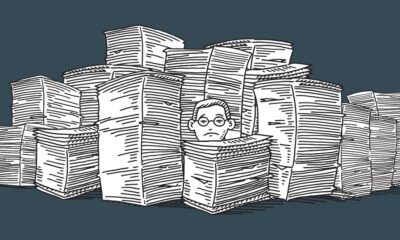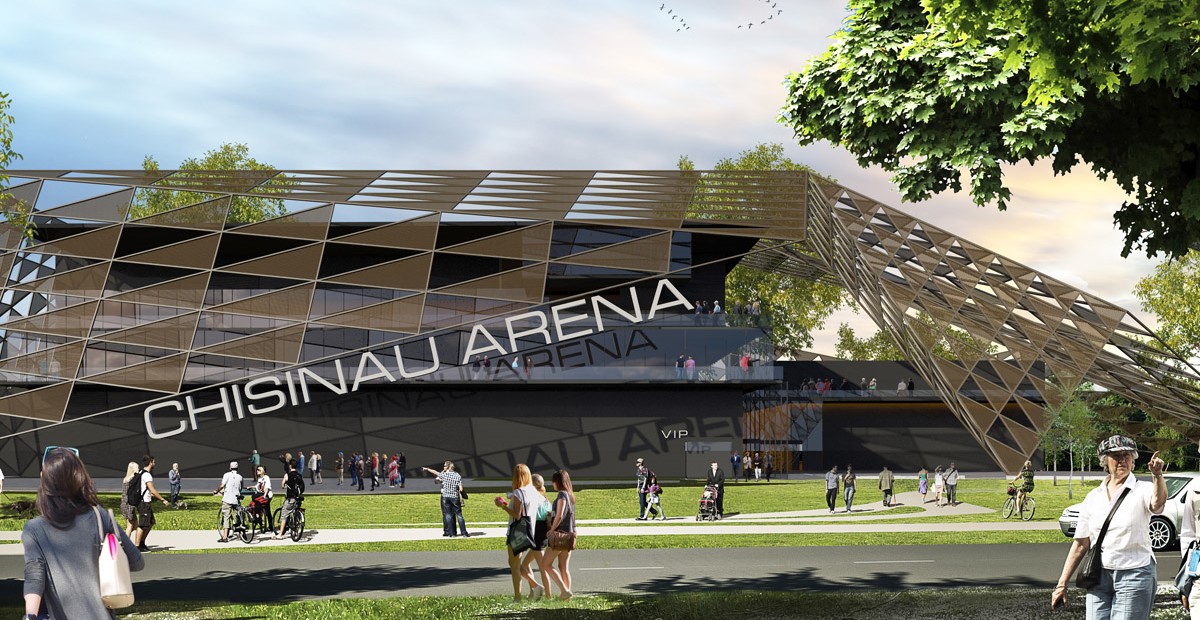
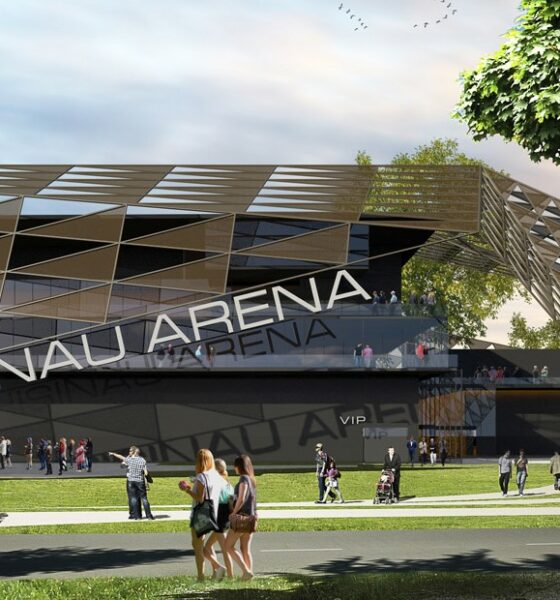
Economy
Chisinau Arena – a successful project or a hopeless failure?
“The first large-scale social project since independence” – this is the way Chisinau Arena Aqua Center & Tennis Club is described on its official webpage. The futuristic complex, occupying a 10-hectare land, looks bright and optimistic on sketches and architectural models, especially when backgrounded by smiling politicians who present themselves as project initiators. Chisinau Arena is supposed to be the main sport and entertainment facility in the capital city, with basketball, volleyball, handball fields, tennis, mini football, boxing courts, concert, congress and exhibition halls, an aqua centre with swimming pools, an aqua park, fitness and SPA, as well as a café-restaurant area, an open public pool and an ice-skating rink.
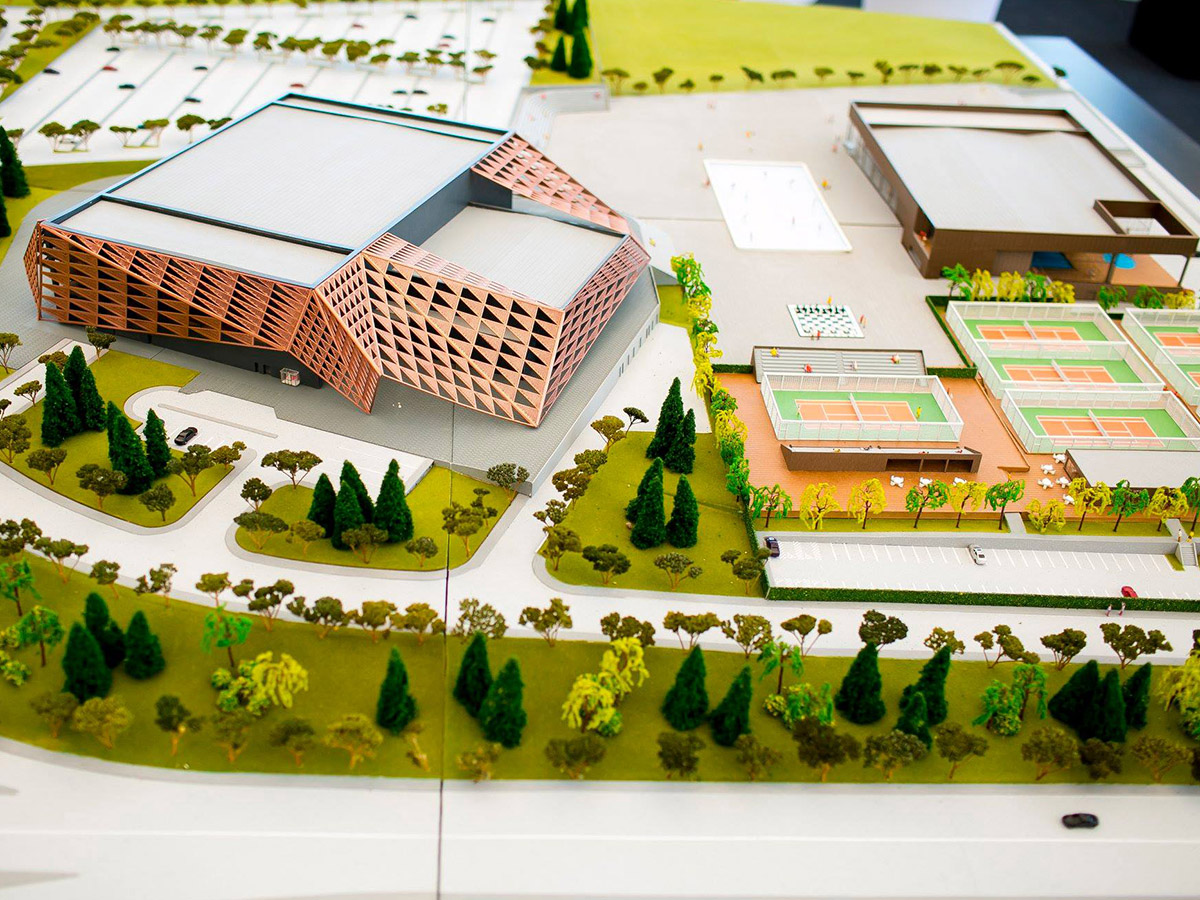
Source: chisinauarena.md
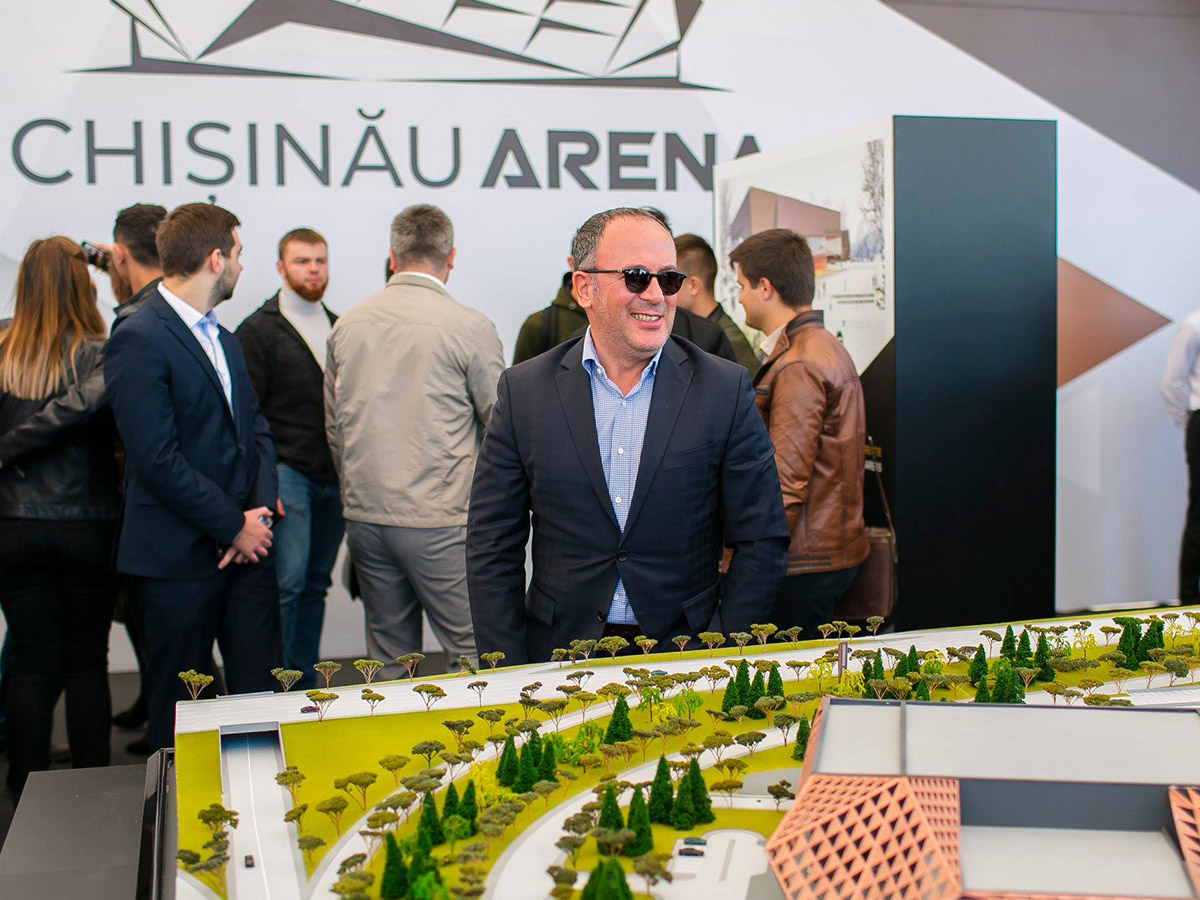
Source: chisinauarena.md
The big problem is that all of it is not ready yet. The opening date is not set, and in order to be able to be put it into operation, more funds from the state budget are still needed. It rather seems the longest-running money laundering project, along with the biggest corruption and embezzlement schemes of the country.
A partnership with issues
Chisinau Arena project was launched in 2018 by the former democratic leader, Vladimir Plahotniuc. First, democrats announced that the arena will be open in the fall of 2019. A public-private partnership between public institutions and a Turkish private company was created in August 2018.
But then, it was found that the complex could not be put into operation because it could not be connected to the gas, water and sewerage networks existing in the area. Also, it was not connected to the electricity networks. In May 2019, an additional agreement was signed, through which state authorities undertook to pay 1.5 million euros in addition to the initial contractual provisions in order to enable the connection to the water and sewerage systems. Thus, the initial deadline was extended to February 2020, then May 2020 and November 2020, suggesting the pandemic crisis would have ruined the authorities’ plans.
The Public Property Agency (PPA) stated that construction works carried out by the Turkish company were completed in December 2019. The initial agreement provided for the construction works to be carried by the private company only in the perimeter of 10 ha around the building. The rest was supposed to be done by the public partner. Still, the public-private partnership didn’t manage to ensure the connection of Chisinau Arena to the municipal networks, including the access roads. Several additional appendixes to the contract were signed, instalment payments were postponed, the public institutions responsible for the implementation of the project informed that they do not have the necessary resources for the design, construction and arrangement of the necessary networks, as the existing ones “do not comply with the technical requirements for the service of such a complex.”
The next issue was the access roads, which were never built, according to the administrator of Chisinau Arena. In May 2021, the state officials responsible for supervising the construction works declared that the building itself is ready. Still, a final document wasn’t signed, as the arrangement of access roads would require additional 2.8 million euros from the state budget. Moreover, the land on which the access roads need to be built are privately owned and do not belong to the complex. They would need to be declared of public utility, while negotiations with owners would need to be conducted in order to allocate other plots to them.
The expropriation of landowners (23 plots and 2 buildings) would require Government decisions and votes in Parliament, which would increase the public contribution by at least one more million euros. That was just another issue not taken into account in the initial phase of the project.
What is more, some former owners of lands on which Chisinau Arena was built claimed that, during the democratic government, they were pressured to give up their property without claiming any compensation, their access to their properties was restricted or they could not use their lands because of uncertainties and the refusal of authorities to issue permissive construction documents.
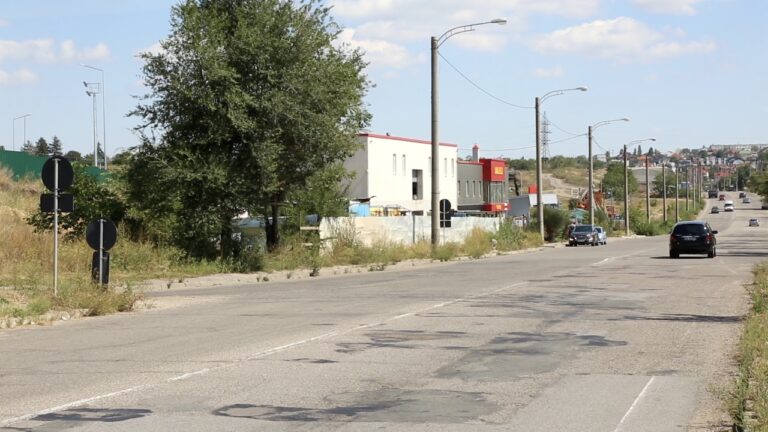
Source: zdg.md
The future of Chisinau Arena doesn’t look very bright. In case the complex is not opened in the next months, conservation costs of not less than 10 million lei per year would be implied. “There are a lot of systems that need to be operational: heating needs to be maintained at a certain level, recycling systems, humidity systems need to be kept at a certain level. […] We wouldn’t like to reach conservation and we already have a decision of the Board of Directors that it is not the best option for the complex,” explained Eduard Calancea, manager of the state company that administrates Chisinau Arena.
By September 2020, 11.5 million euros were allocated from the state budget for Chisinau Arena. Most of this amount was paid in 2018-2019 when the complex was built. Another 1.5 million euros were transferred to the private partner, in July 2020, as an instalment within the public-private partnership agreement.
Corruption, money laundering & embezzlement
All in all, the Government undertook to pay a total amount of 44.5 million euros (!) as the total cost of the project. The funds are supposed to be paid from the future incomes generated by the complex and from the state budget, in instalments, during a period of 12 years. Given that Chisinau Arena does not generate revenue, the annual costs and instalments are paid from the state budget nowadays.
A criminal case was filed, in October 2019, by the Anti-corruption Prosecutor’s Office against the actions of the government officials who participated in the launch of the Chisinau Arena. The group of officials were accused of embezzlement of foreign property in circumstances of abuse of power. In addition to the 10 ha on which the arena was built, the group would have allegedly stolen another 59 hectares of land from the agricultural circuit, which were pledged to the Turkish construction company. “If, due to state authorities fault, Chisinau Arena is not put into operation in the next period or at least one instalment is not paid, the 59 ha land will become foreign property,” MP Alexandru Slusari informed.
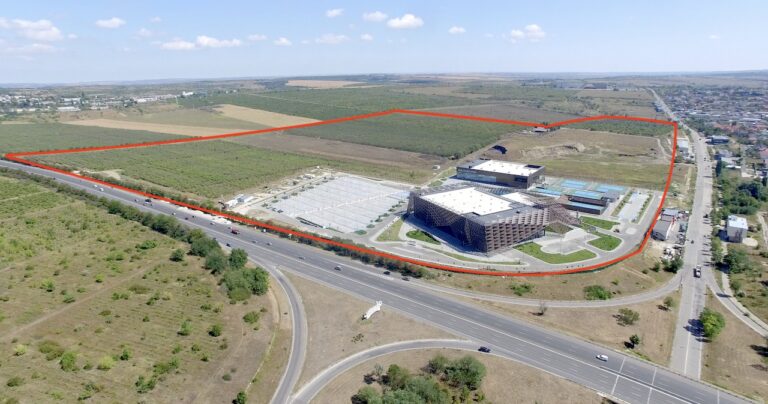
Source: zdg.md
There are no clear provisions in the contract signed with Turkish company that it would have to justify the costs, so there is a risk that the real cost of the project was overrated. “This project was conceived as a scheme that would eventually lead to the takeover by certain groups of the property and land that was allocated for this project. There is such an impression created that the amount of 43 million euros was randomly named. No supporting documents have been found to clarify how this amount was reached. Things have changed over time and now the cost of this project is 44.5 million euros. The risks are that, in this case, the real cost is lower than what the state spends for this project,” Maia Sandu pointed out.
Prosecutors are also in the process of checking the legality of the way the contract price is formed, as well as granting preferential tax conditions to the company that built the arena (the tax exemption applied on the value added tax when importing building materials, without diminishing the payments to suppliers).
After all the things revealed and those that were not discovered yet, the question is how much the citizens of the country would still have to pay until Chisinau Arena would start to generate revenue.
Photo: chisinauarena.md
Society
“They are not needy, but they need help”. How Moldovan volunteers try to create a safe environment for the Ukrainian refugees

At the Government’s ground floor, the phones ring constantly, the laptop screens never reach standby. In one corner of the room there is a logistics planning meeting, someone has a call on Zoom with partners and donors, someone else finally managed to take a cookie and make some coffee. Everyone is exhausted and have sleepy red eyes, but the volunteers still have a lot of energy and dedication to help in creating a safe place for the Ukrainian refugees.
“It’s like a continuous bustle just so you won’t read the news. You get home sometimes and you don’t have time for news, and that somehow helps. It’s a kind of solidarity and mutual support,” says Vlada Ciobanu, volunteer responsible for communication and fundraising.
The volunteers group was formed from the very first day of war. A Facebook page was created, where all types of messages immediately started to flow: “I offer accommodation”, “I want to help”, “I want to get involved”, “Where can I bring the products?”, “I have a car and I can go to the customs”. Soon, the authorities also started asking for volunteers’ support. Now they all work together, coordinate activities and try to find solutions to the most difficult problems.
Is accommodation needed for 10, 200 or 800 people? Do you need transportation to the customs? Does anyone want to deliver 3 tons of apples and does not know where? Do you need medicine or mobile toilets? All these questions require prompt answers and actions. Blankets, sheets, diapers, hygiene products, food, clothes – people bring everything, and someone needs to quickly find ways of delivering them to those who need them.
Sometimes this collaboration is difficult, involves a lot of bureaucracy, and it can be difficult to get answers on time. “Republic of Moldova has never faced such a large influx of refugees and, probably because nobody thought this could happen, a mechanism of this kind of crisis has not been developed. Due to the absence of such a mechanism that the state should have created, we, the volunteers, intervened and tried to help in a practical way for the spontaneous and on the sport solutions of the problems,” mentions Ecaterina Luțișina, volunteer responsible for the refugees’ accommodation.
Ana Maria Popa, one of the founders of the group “Help Ukrainians in Moldova/SOS Українці Молдовa” says that the toughest thing is to find time and have a clear mind in managing different procedures, although things still happen somehow naturally. Everyone is ready to intervene and help, to take on more responsibilities and to act immediately when needed. The biggest challenges arise when it is necessary to accommodate large families, people with special needs, for which alternative solutions must be identified.
Goods and donations
The volunteers try to cope with the high flow of requests for both accommodation and products of all kinds. “It came to me as a shock and a panic when I found out that both mothers who are now in Ukraine, as well as those who found refuge in our country are losing their milk because of stress. We are trying to fill an enormous need for milk powder, for which the demand is high and the stocks are decreasing”, says Steliana, the volunteer responsible for the distribution of goods from the donation centers.
Several centers have been set up to collect donations in all regions of Chisinau, and volunteers are redirecting the goods to where the refugees are. A system for processing and monitoring donations has already been established, while the volunteer drivers take over the order only according to a unique code.
Volunteers from the collection centers also do the inventory – the donated goods and the distributed goods. The rest is transported to Vatra deposit, from where it is distributed to the placement centers where more than 50 refugees are housed.
When they want to donate goods, but they don’t know what would be needed, people are urged to put themselves in the position of refugees and ask themselves what would they need most if they wake up overnight and have to hurriedly pack their bags and run away. Steliana wants to emphasise that “these people are not needy, but these people need help. They did not choose to end up in this situation.”
Furthermore, the volunteer Cristina Sîrbu seeks to identify producers and negotiate prices for products needed by refugees, thus mediating the procurement process for NGOs with which she collaborates, such as Caritas, World Children’s Fund, Polish Solidarity Fund, Lifting hands, Peace Corps and others.
One of the challenges she is facing now is the identifying a mattress manufacturer in the West, because the Moldovan mattress manufacturer that has been helping so far no longer has polyurethane, a raw material usually imported from Russia and Ukraine.
Cristina also needs to find solutions for the needs of the volunteer groups – phones, laptops, gsm connection and internet for a good carrying out of activities.
Hate messages
The most difficult thing for the communication team is to manage the hate messages on the social networks, which started to appear more often. “Even if there is some sort of dissatisfaction from the Ukrainian refugees and those who offer help, we live now in a very diverse society, there are different kind of people, and we act very differently under stress,” said Vlada Ciobanu.
Translation by Cătălina Bîrsanu
Important
#WorldForUkraine – a map that shows the magnitude of the world’s actions against Russian aggression

The international community and volunteers from all over te world have launched #WorldForUkraine as a platform that shows the magnitude of the world’s actions against the Russian aggression. In a digital world – it is an interactive map of public support of Ukrainians under the hashtag #WorldForUkraine – rallies, flash mobs, protests around the world. In the physical dimension – it is your opportunity to take to the streets and declare: “No to Putin’s aggression, no to war.”
„Today, along with the political and military support, emotional connection with the civilized world and truthful information are extremely important for Ukraine. The power to do it is in your hands. Join the #WorldForUkraine project and contribute to the victorious battle against the bloodshed inflicted on Ukraine by the aggression of the Russian Federation”, says the „about the project” section of the platform.
Go to the streets — Tell people — Connect and Unite — Become POWERFUL
Volunteers have launched #WorldForUkraine as a platform that shows the magnitude of the world’s actions against Russian aggression. In digital world – it is an INTERACTIVE MAP of public support of Ukrainians worldforukraine.net under the hashtag #WorldForUkraine – rallies, flash mobs, protests around the world. In the physical dimension – it is your opportunity to take to the streets and declare: “No to Putin’s aggression, no to war.” There you may find information about past and future rallies in your city in support of Ukraine. This is a permanent platform for Ukrainian diaspora and people all over the world concerned about the situation in Ukraine.
So here’s a couple of things you could do yourself to help:
* if there is a political rally in your city, then participate in it and write about it on social media with geolocation and the hashtag #WorldForUkraine
* if there are no rallies nearby, organize one in support of Ukraine yourself, write about it on social media with geolocation adding the hashtag #WorldForUkraine
The map will add information about gathering by #WorldForUkraine AUTOMATICALLY
Your voice now stronger THAN ever
All rallies are already here: https://worldforukraine.net
Important
How is Moldova managing the big influx of Ukrainian refugees? The authorities’ plan, explained

From 24th to 28th of February, 71 359 Ukrainian citizens entered the territory of Republic of Moldova. 33 173 of them left the country. As of this moment, there are 38 186 Ukrainian citizens in Moldova, who have arrived over the past 100 hours.
The Moldovan people and authorities have organized themselves quickly from the first day of war between Russia and Ukraine. However, in the event of a prolonged armed conflict and a continuous influx of Ukrainian refugees, the efforts and donations need to be efficiently managed. Thus, we inquired about Moldova’s long-term plan and the state’s capacity to receive, host, and treat a bigger number of refugees.
On February 26th, the Ministry of Labor and Social Protection of Moldova approved the Regulation of organization and functioning of the temporary Placement Center for refugees and the staffing and expenditure rules. According to the Regulation, the Centers will have the capacity of temporary hosting and feeding at least 20 persons, for a maximum of 3 months, with the possibility of extending this period. The Centers will also offer legal, social, psychological, and primary medical consultations to the refugees. The Center’s activity will be financed from budget allocations, under Article 19 of Provision no. 1 of the Exceptional Situations Commission from February 24th, 2022, and from other sources of funding that do not contravene applicable law.
The Ministry of Inner Affairs and the Government of Moldova facilitated the organization of the volunteers’ group “Moldova for Peace”. Its purpose is to receive, offer assistance and accommodation to the Ukrainian refugees. The group is still working on creating a structure, registering and contacting volunteers, etc. It does not activate under a legal umbrella.
Lilia Nenescu, one of the “Moldova for Peace” volunteers, said that the group consists of over 20 people. Other 1700 registered to volunteer by filling in this form, which is still available. The group consists of several departments:
The volunteers’ department. Its members act as fixers: they’re responsible for connecting the people in need of assistance with the appropriate department. Some of the volunteers are located in the customs points. “The Ministry of Inner Affairs sends us every day the list of the customs points where our assistance is needed, and we mobilize the volunteers”, says Lilia Nenescu.
The Goods Department manages all the goods donated by the Moldavian citizens. The donations are separated into categories: non-perishable foods and non-food supplies. The volunteers of this department sort the goods into packages to be distributed.
The Government intends to collect all the donations in four locations. The National Agency for Food Safety and the National Agency for Public Health will ensure mechanisms to confirm that all the deposited goods comply with safety and quality regulations.
The Service Department operates in 4 directions and needs the volunteer involvement of specialists in psychology, legal assistance (the majority of the refugees only have Ukrainian ID and birth certificates of their children); medical assistance; translation (a part of the refugees are not Ukrainian citizens).
According to Elena Mudrîi, the spokesperson of the Ministry of Health, so far there is no data about the number of Covid-19 positive refugees. She only mentioned two cases that needed outpatient medical assistance: a pregnant woman and the mother of a 4-day-old child.
The Accommodation Department. The volunteers are waiting for the centralized and updated information from the Ministry of Labor about the institutions offering accommodation, besides the houses offered by individuals.
The Transport Department consists of drivers organized in groups. They receive notifications about the number of people who need transportation from the customs points to the asylum centers for refugees.
The municipal authorities of Chișinău announced that the Ukrainian children refugees from the capital city will be enrolled in educational institutions. The authorities also intend to create Day-Care Centers for children, where they will be engaged in educational activities and will receive psychological assistance. Besides, the refugees from the municipal temporary accommodation centers receive individual and group counseling.
In addition to this effort, a group of volunteers consisting of Ana Gurău, Ana Popapa, and Andrei Lutenco developed, with the help of Cristian Coșneanu, the UArefugees platform, synchronized with the responses from this form. On the first day, 943 people offered their help using the form, and 110 people asked for help. According to Anna Gurău, the volunteers communicate with the Government in order to update the platform with the missing data.
Translation from Romanian by Natalia Graur












